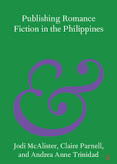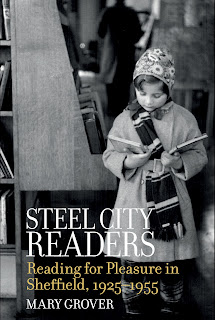Maybe I've simplified things a little in the title of the post due to the allure of alliteration. But there's definitely a lot in these recent publications about race/ethnicity and racism.
As always, if there's a hyperlink in the title, that means it's freely accessible online.
----
Abdullah-Poulos, Layla
(2023)
"Sisters, Skanks, and Jezebels: American Muslim Fiction and the Other Woman."
The Bloomsbury Handbook of Muslims and Popular Culture. Ed. Hussein Rashid and Kristian Petersen. London: Bloomsbury.
205-214. [Excerpt here.]
Derbyshire, Valerie Grace (2023). “ ‘Do you think I haven’t paid for what I did?’: Rape in the Mills & Boon Romantic Novels of Penny Jordan.” Journal of Popular Romance Studies 12.
Garcia, Christina
(2023).
The Race of Publishing: The Troubling Whiteness in Publishing and the Forces Pushing Back.
Master of Arts in English,
Texas Christian University.
Henderson, Aneeka Ayanna
(2024).
"Popular Romance and Literary Undergrounds."
The Cambridge Companion to Contemporary African American Literature. Ed. Yogita Goyal. Cambridge. Cambridge University Press. 164-179. [Excerpt]
Hutter, Verena (2023). "Fire, Savannah, and Passion: The New Africa Novel and the Construction of White Femininity." Gender and German Colonialism: Intimacies, Accountabilities, Intersections. Ed. Chunjie Zhang and Elisabeth Krimmer. New York: Routledge. [See https://rsdb.vivanco.me.uk/bibliography/fire-savannah-and-passion-new-africa-novel-and-construction-white-femininity for more details.]
Kamblé, Jayashree (2023). “Romancing the University: BIPOC Scholars in Romance Novels in the 1980s and Now.” Esferas Literarias 6: 39-55.
Phumithammarat, Nanphatchaon (2023). The Cultural politics of Chinese -Thai Identities in Ethnic Romance Novels by Female Authors. PhD thesis, Silpakorn University.
Posti, Piia K. (2024). “‘I Get to Exist as a Black Person in the World’: Bridgerton as Speculative Romance and Alternate History on Screen.” History and Speculative Fiction. Ed. John L. Hennessey. Palgrave Macmillan, Cham. [The whole book is available for free since it's open access.]
Limond, Verity. (2023) "‘The door is open to everyone’: The public libraries of Gozo." Omertaa, Journal for applied anthropology. 745-754.




